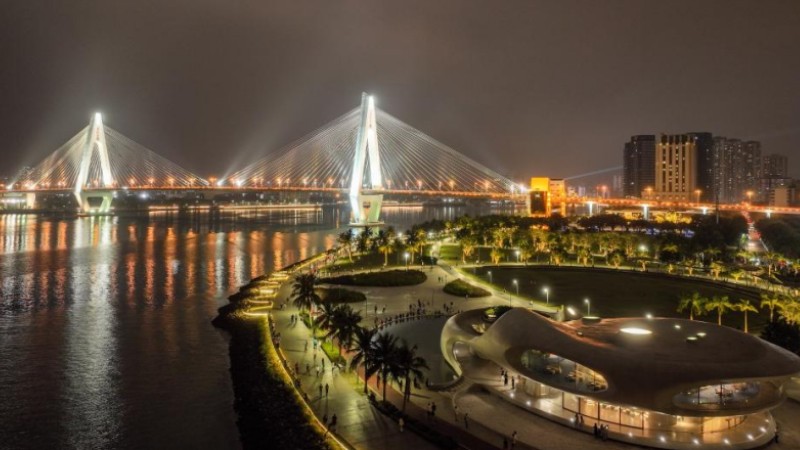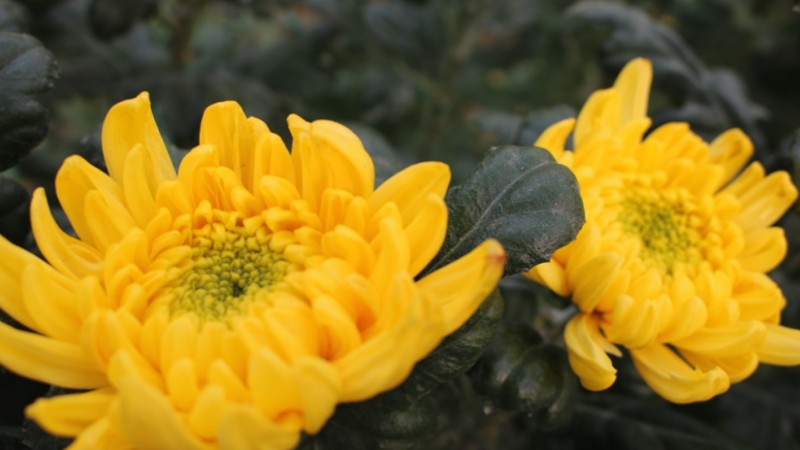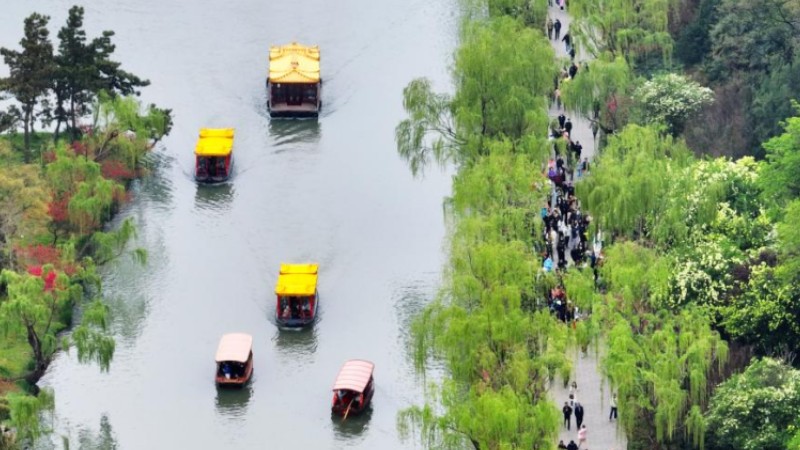Tea industry flourishes in Chibi, C China’s Hubei
Chibi city in central China’s Hubei Province is experiencing a surge in its tea industry.
The city, called “the origin of an ancient tea route” by the International Tea Committee in 2015, is famous for its brick tea, dark tea that is pressed into the shape of bricks at high temperatures. Chibi’s brick tea dates back over 1,000 years.
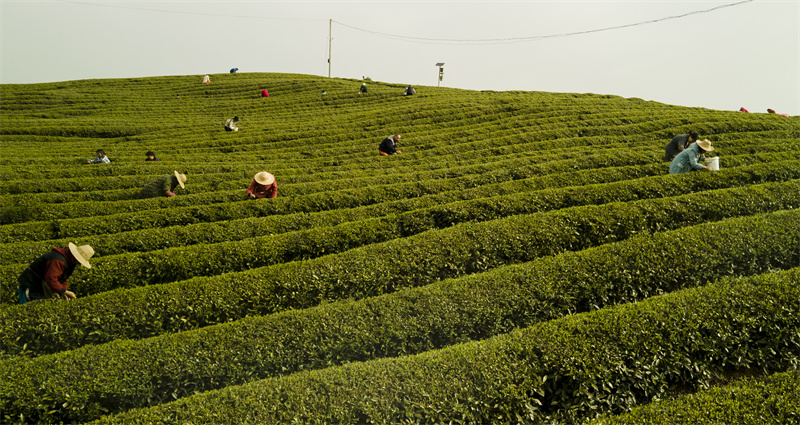
Farmers harvest tea leaves in Chibi city, central China’s Hubei Province. (Photo/Liu Jianguo)
By leveraging rich tea resources and a profound tea culture, the city has promoted the integration of its tea industry with tourism to help increase tea farmers’ income and advance rural revitalization, built a standard system for brick tea, and boosted the high-quality development of the tea industry.
By the end of 2022, the total tea planting area in Chibi reached 165,000 mu (11,000 hectares), and the total output of tea leaves reached 71,000 tonnes, generating an output value of 6 billion yuan ($871 million). The combined revenue from tea-related tourism and the output value of the industrial chain of the tea industry in the city stood at 2.7 billion yuan and about 16.27 billion yuan, respectively. The thriving tea industry in Chibi has helped 35,000 residents find employment and over 5,000 households of tea farmers boost their income.
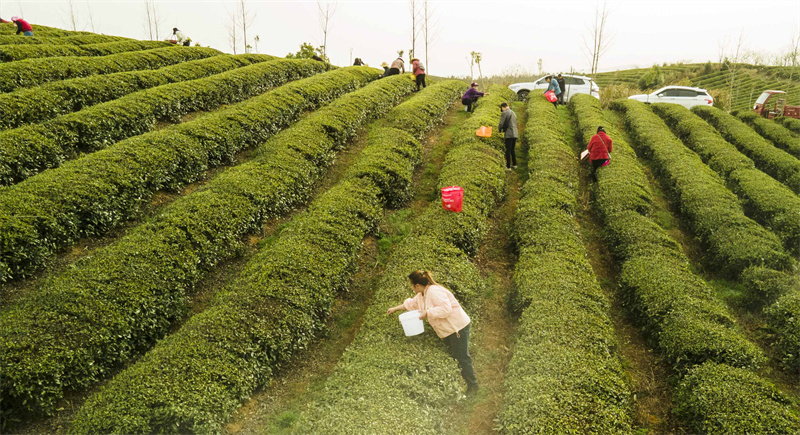
Tourists pick tea leaves in Chibi city, central China’s Hubei Province. (Photo/Liu Jianguo)
“I can earn 200 yuan to 300 yuan a day by picking about 5 kilograms of tea leaves at the Yangloudong tea plantation,” said Li Chunmei, a tea farmer, adding that she can earn over 5,000 yuan by harvesting spring tea leaves.
“We sold tea leaves from 1,200 yuan to 1,600 yuan per kilogram last year. This year, our tea leaves are priced from 1,600 yuan per kilogram, and the price cap is set at 5,000 yuan per kilogram,” said an executive of Hubei Yangloudong Guocha Co., Ltd.

Photo shows a tablet of an ancient trade route that started from Wuyishan, a city in southeast China’s Fujian Province, and ended up in St. Petersburg, Russia in a museum of brick tea in Yangloudong, Chibi city. (People’s Daily Online/Guan Xiyan)
Chibi built a museum of brick tea in Yangloudong, an ancient town, to better spread tea culture. In ancient times, merchants transported tea products along an ancient tea route that linked Hubei with Russia. The route started from Wuyishan, a city in southeast China’s Fujian Province, passed through Chibi and Hohhot, capital of north China’s Inner Mongolia Autonomous Region, and stretched all the way to St. Petersburg, Russia.
The museum attracts over 800,000 visitors from home and abroad per year, and Yangloudong welcomes over 5,000 tourist visits a day.

Photo shows a digital tea garden monitoring platform. (People’s Daily Online/Guan Xiyan)
In the Yangloudong tea ecological industrial park in Chibi, a platform empowered by big data monitors temperature, humility, soil moisture content, and the growth of tea leaves at tea gardens.
“Data analysis makes the management of tea gardens smarter. We can collect accurate data in aspects such as pesticide residue, prevention and control of diseases and pests, and heavy metals in the soil,” said a staff member of the Hubei Qingzhuan Tea Industry Development Group Co., Ltd., adding that the smart tea garden system is facilitating the high-quality development of the local tea industry.
The Yangloudong tea ecological industrial park is home to Hubei’s first standard brick tea storage facility, which has a maximum storage capacity of 1,200 tonnes, with each standard wooden storage room being able to store 25 tonnes of brick tea.
The facility is equipped with intelligent ventilation, fire control and security systems, and the temperature and humidity in the facility are fixed. Customers can preserve their brick tea in the facility and get the tea back when they want.
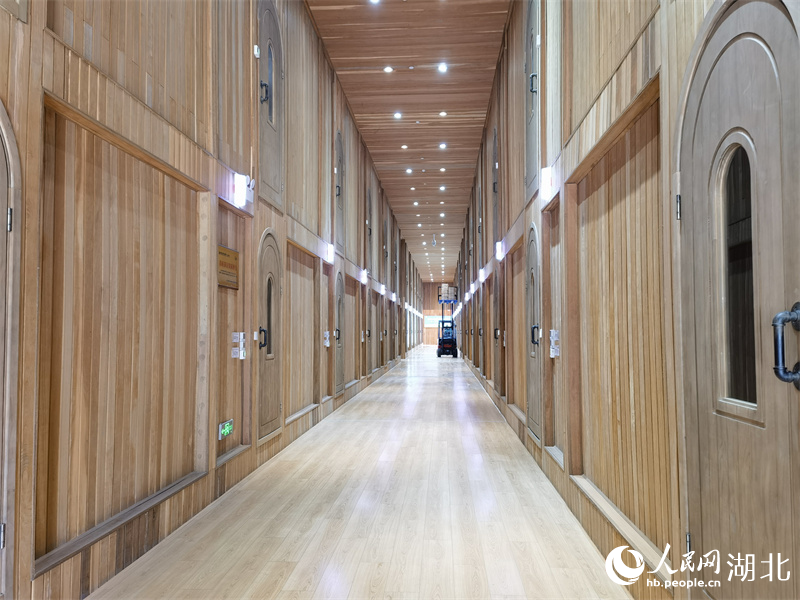
Photo shows the brick tea storage facility of the Yangloudong tea ecological industrial park in Chibi city, central China’s Hubei Province. (People’s Daily Online/Zhou Wen)

Photo shows raw materials for making brick tea in Chibi city, central China’s Hubei Province. (People’s Daily Online/Zhou Wen)
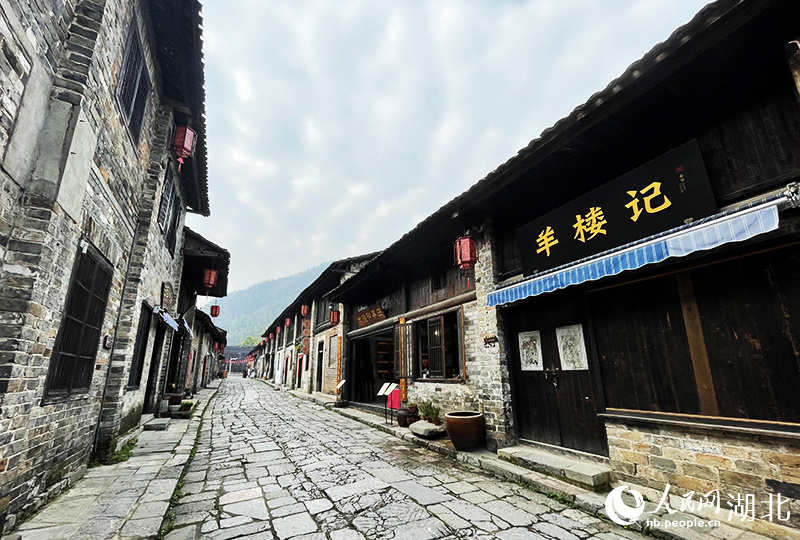
Photo shows a street in Yangloudong, an ancient town in Chibi city, central China’s Hubei Province. (People’s Daily Online/Guan Xiyan)
Photos
Related Stories
- Tea industry boosts rural revitalization in southwest mountainous area
- Inheritors pass down traditional tea-making techniques in Xinyang, China’s Henan
- Russian merchant's tea journey to origin of world-renowned black tea
- Traditional tea planting mirrors human-nature harmony
- Tea harvest in Hanzhong, NW China's Shaanxi
- Town in E China’s Anhui boosts rural revitalization with tea industry
- County in E China's Zhejiang increases tea growers' income by promoting carbon sink trading
- Taiwanese farmers run thriving mountain tea businesses in SE China’s Fujian
- Workers busy harvesting tea leaves before Qingming Festival
- Traditional tea processing techniques well inherited in China
Copyright © 2023 People's Daily Online. All Rights Reserved.







